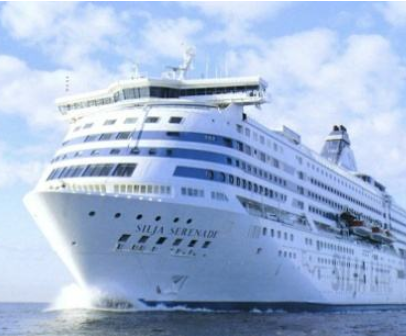Ship's new energy creates a "green heart" for electric ships
Date:2019-10-15 origin:RCCN Visit:7496
The tentacles of new energy have been extended to the ship sector: the river and lake scenic spots in major cities nationwide are actively promoting the work of ship oil reform, the Yangtze River ferry, the Zhujiang passenger ship and other power-extended electric demonstration vessels, and the large-tonnage commercial vessels are also exploring the development of oil and gas. Mixed technical route. More and more power battery companies are aiming at the segment of the ship's electrification, and have developed a targeted marine power battery system to take the lead in early deployment.
New energyization of ships incites huge market
Since the State Council reviewed and approved the "Three-Year Battle Plan for Winning the Blue Sky Defence War" in 2018, the Ministry of Communications and other departments successively released the "Special Action Plan for Ship Pollution Prevention and Control in the Yangtze River Economic Belt (2018-2020)" and the Action Plan for Promoting the Green Development of the Pearl River Water Transport. (2018-2020) "Notice on Doing a Good Job in the Implementation of Ship Water Pollutant Emission Control Standards" and other documents, encourage ships to use clean energy, reform oil and gas collection systems and shore power receiving facilities, etc. It is expected that by the end of 2020, Complete the transformation of the ship that does not meet the requirements for pollutant discharge.
Electric ships have the advantages of low energy consumption, zero pollution, low cost, etc., and become an important path to rectify ship pollution and achieve energy conservation and emission reduction. Ji Yongbo, director of the Ship Transportation Technology Research Center of the Water Transport Science Research Institute of the Ministry of Communications, pointed out that the current state vigorously promotes the development of electric ships. The domestic inland electric boats are developing at a faster pace, mainly focusing on passenger ships, ferries, official ships and small dry bulk cargoes of around 500 tons. ferry.
According to the ship registration data of China Classification Society (CCS), the net tonnage of China's domestic river ships in 2018 is about 195 million tons. According to industry analysts, according to the 50% motorization ratio, the corresponding net weight of the electricized ship is 97.5 million tons. According to the calculation of 1.3KWh of lithium battery per ton of electric boat, the theoretical demand of lithium battery will reach 127GWh, and the market capacity is very impressive. .
In terms of cost, the research data of the Institute of High-Industry Research and Lithium Research shows that the operating cost per 100 kilometers of ships is 4,320 yuan for diesel-powered ships, 4,440 yuan for LNG-fuel ships, and 3,272 yuan for electric ships. Electric ships have significant advantages. At the same time, since the electric ship has a simple structure, few rotating parts, and high reliability, the maintenance cost is low.
Power battery companies preemptive layout
The development of green ships is the trend of the times, and many domestic power battery companies have made substantial actions in product development, industrialization layout, and standard setting.
In June, Yiwei Lithium and Shanghai Hao Shipping signed the “New Hybrid Electric Bulk Carrier Project Cooperation Agreement”, which set three world records: the world's largest batch of new energy bulk carriers (18 ships), The world's largest single-vehicle new energy bulk carrier (5,400 tons), the world's largest river and sea transport new energy bulk cargo fleet. These new energy vessels will all be powered by Yiwei Lithium Power Battery System, which can save about 30% of operating costs compared with ordinary commercial vessels of the same type.
Up to now, the total installed capacity of Yiwei Lithium Marine Battery has exceeded 50MWh, providing power battery system for more than 200 new energy ships. “The distance between the port and the city is getting closer and closer. In order to reduce the pollution impact on the coastal waters and residents, Yiwei Lithium can actively promote the technological innovation of marine power lithium battery and power system, and promote the transformation of oil and lead in the country. The battery is working with a lithium battery," said Liu Jincheng, chairman and president of Yiwei Lithium.
The world's first 1,000-tonne inland new energy electric boat - "Puffin", equipped with a 26-ton supercapacitor + ultra-high-power lithium battery dual power management system, the entire ship battery capacity is about 2400KWh, which is equivalent to 30-50 The battery capacity of an electric vehicle, under full load conditions, the ship's speed can reach up to 12.8 km / h, and the endurance capacity can reach 80 km.
The ship was powered by Shanghai Ruihua Company and was put into operation in April this year. "In the case of continuous improvement of the tonnage of ships and continuous improvement of cruising range, traditional lead storage batteries will be difficult to support, supercapacitors, power lithium-ion batteries, etc. or the future of choice." Shanghai Ruihua related person in charge said.
At the beginning of this year, the Ningde era signed a strategic cooperation agreement with the China Classification Society Wuhan Institute of Standards. The two sides will cooperate in promoting the research of battery system technical standards and water applications, accelerating the recognition and inspection of related battery products, and jointly launching electric power. Research and revision of ship safety regulations.
Internationally, leading battery companies such as South Korea's Samsung SDI, Japan's GS Yuasa, Nidec Ansaldo Industrial Systems, German battery manufacturers Akasol AG and Lion Smart have entered the electric ship market and developed more A new type of marine lithium battery system.
Large-scale application still needs multiple efforts
Like new energy vehicles, the performance indicators, safety, charging speed, and distribution of charging facilities of power batteries are also the main factors affecting the development of electric ships.
It is understood that marine lithium batteries must be certified by the technical standards of China Classification Society and its authorized institutions. As of June this year, there are 11 lithium-ion battery companies for electric boats certified by the classification society in China, and 25 certified battery products. From the actual use situation, lithium iron phosphate square battery is the mainstream technical route.
At the first seminar on innovation and development of electric ships, Huang Jialin, chairman of Hangzhou Modern Ship Design and Research Co., Ltd. pointed out that at home and abroad, major breakthroughs have been made in the key technologies of lithium-ion battery energy storage systems. Network technology, ship electric propulsion technology, and high-power power grid-connected technology have also obtained a lot of research results.
Wu Kai, vice president of Ningde Times, said that Ningde era has overcome technical problems such as safety, long battery life, high power and long life. The battery pack system is designed to use battery packs with IP67 or higher protection level, which can effectively avoid water vapor, salt spray and dust. The resulting safety risks meet the requirements of the ship.
It should not be overlooked that there are still many technical difficulties in the development of electric ships, and the business model needs to be explored. The industry standards and management systems need to be further improved.
Ji Yongbo pointed out that the inland river electric ship's small shore capacity, poor compatibility of facilities and equipment, and high battery replacement cost during the life cycle of the ship are the primary issues to be solved in the next phase of the development of electric ships.
In terms of electric vehicle related industry standards, Li Qiang, deputy dean of China Shipbuilding Industry Comprehensive Technology and Economic Research Institute, pointed out that with the development of electric ships in the future, the overallity, safety, economy, endurance and industrial chain integrity of electric boats Other aspects will generate a series of new standard requirements. China will draw on the technical development trends of relevant international organizations such as the International Maritime Organization (IMO) and the International Association of Classification Societies (IACS) to develop standards that are consistent with the development of domestic electric ships. Luo Xiaofeng, director of the Wuhan Classification Institute of China Classification Society, further pointed out that on the basis of setting industry standards, it is necessary to establish and improve the corresponding standard system, especially the safety regulations for electric ships.
Hong Zhichao, assistant director of the Science and Technology Department of China Shipbuilding Industry Group, said that in order to develop key technologies for electric ships, in addition to national policy support, it is necessary to strengthen the use of market mechanisms to promote cross-sector cooperation in industries and encourage the parallel development of multiple technologies.
















 RCCN WeChat QrCode
RCCN WeChat QrCode Mobile WebSite
Mobile WebSite
